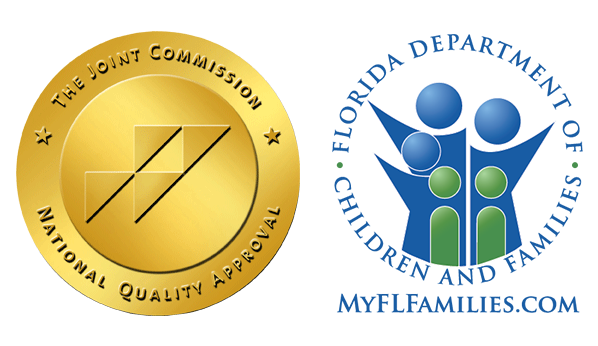What Is Molly?
Molly, often known as MDMA or ecstasy, is a synthetic substance that affects mood and perception. Inducing sensations of energy, pleasure, and warmth while warping time and sensory perception by raising serotonin, adrenaline, and dopamine levels in the brain, it shares molecular similarities with hallucinogens and stimulants.
Ecstasy’s potential for addiction has not yet been thoroughly determined by researchers. But because it affects the same neurotransmitters that other addictive drugs do, using Molly is linked to some addictive characteristics, such as impulsivity and persistent use despite side effects.
MDMA is a club drug that is particularly popular at raves because it allows users to dance all night long. The extreme euphoria it causes allows partygoers to experience electric dance music on a whole new level.
It is often taken orally in the form of a capsule or pill, so it’s easily ingested in a secretive way. Although emotional and physical closeness can be felt after using MDMA, these sensations rarely last. Like with any drug, using Molly carries both immediate and long-term hazards, and even infrequent users run the risk of developing potentially fatal complications from using the drug.
Symptoms Associated with Molly Use
Molly can affect the mind and body in a variety of ways. The immediate negative consequences include:
Faulty decision making
False feelings of love
Confusion
Depression
Problems sleeping
Severe phobia
Paranoia
Desire for drugs
Stiff limbs
Feeling dizzy, cold, or sweaty
Teeth clenching uncontrollably
Distorted perception
Nausea
Molly also has adverse long-term negative consequences:
Damage to the brain that may impair recall and thought
damage to various brain regions that regulate vital processes like sleep and mood
deteriorated nerve receptors and branches
Depression
Anxiety
Reduced memory
Renal failure
Hemorrhaging
Psychosis
A cardiovascular emergency
Convulsions
Death
Behavior Patterns Associated with Molly’s Use
- A pattern of using Molly in an unsuitable way that causes the user to experience substantial distress and/or problems with daily functioning
- Strong cravings to use Molly on a regular basis in a variety of scenarios, including pleasant or stressful ones, ones where the person is socializing, etc.
- Using the medication under circumstances where doing so is dangerous
- Abandoning significant life goals and hobbies as a result of MDMA use
- Inability to complete critical tasks because of using Molly
- The emergence of a substantial Molly tolerance
- Even though they have explicitly said they want to stop using MDMA or cut back, they are unable to do so
- The person spends a lot of time attempting to obtain MDMA, using it, or getting clean after using it
- Despite having serious problems with their career, relationships, education, or other critical areas, the user of MDMA continues to take it
- Even though they are aware that using MDMA leads to psychological and/or bodily issues, the user nevertheless uses the substance
Treatment for Molly’s Addiction
Clients who visit a South Florida drug detox facility will have access to healthcare professionals 24/7 who know how to treat the most severe symptoms and make their clients as comfortable as possible. Withdrawal may be uncomfortable, but clients will have the best possible care throughout this time. People trying to stop taking MDMA may enroll in a residential addiction recovery center in Florida after detox. Attending various forms of counseling and group meetings to address the underlying causes of Molly’s addiction will be a part of a typical day in inpatient recovery.
A reputable Florida rehab facility for Molly’s addiction should cater to your individual requirements and provide care. To reduce the chance of relapse, treatment should include detox, therapies that address the mind, body, and spirit, family engagement, relapse prevention education, and an effective aftercare program:
Detox: One of the most crucial initial phases of your treatment is detox. Your body will be removing MDMA and other poisons during this process. Both the likelihood of danger and your discomfort will be reduced with effective, compassionate care.
Drug Rehab in Florida: Following a successful detox, your rehabilitation is continued with specialized behavioral therapeutic interventions. You’ll take part in family, group, and individual therapy sessions so you can identify and deal with the underlying causes of your MDMA addiction. Additionally, you’ll learn how to recognize triggers and high-risk circumstances and improve your relapse prevention techniques.
Continuing in Freedom: A good treatment facility will have staff who will work with you to develop an aftercare plan as your recovery progresses. When you first quit using drugs, it’s simple to get complacent and think you’ve done all the effort. However, it’s crucial to continue going to meetings, going to programs and retreats for recovery, and generally keeping your recovery front and center.
Conclusion
Molly is a dangerous drug. Ecstasy is frequently laced with other drugs, so it’s critical to check into a reputable Molly addiction treatment facility in Florida that provides you with a fully customized plan to meet your needs. Engaging in a residential treatment program for both an addiction to MDMA/Molly and any other substances you may unknowingly be consuming is the best step you can take to freedom.












